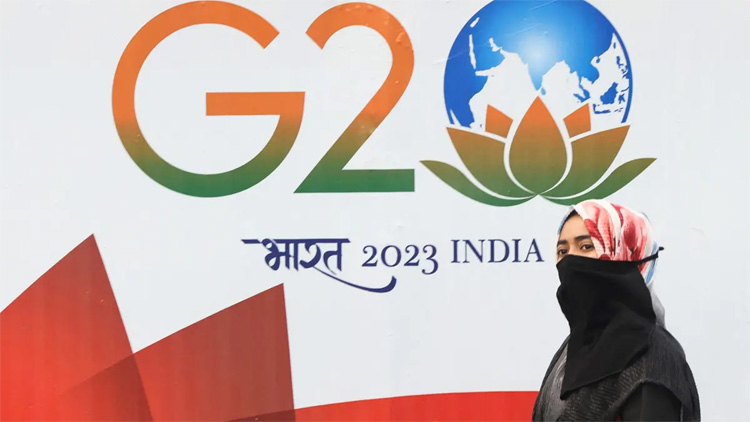After months of wrangling over language on Ukraine, G-20 negotiators are now worried about reaching a consensus over climate change issues ahead of the leaders’ summit in September.
The concerns have grown after two G-20 Ministerial meetings on energy transitions, environment and climate at the end of July ended without joint language on a number of key issues, including emissions targets, cutting down on fossil fuels, and climate finance, and the differences carried into virtual Sherpa negotiations for a “zero-draft” or first draft of the Leaders’ Declaration last week, said a number of sources. The first meeting was the G-20 Energy Transition Working Group (ETWG) in Goa followed by the G-20 Environment and Climate Sustainability Working Group (ECSWG) held in Chennai last month.
As a result, the language of the Chairman’s Summary and Outcome documents recorded a number of “non-agreed paragraphs” amongst G-20 members. While the Russia-China combine still held out against the G7 countries over the paragraphs pertaining to Ukraine, with China maintaining that no “geopolitical” issues should be included, the focus is now shifting to the divide between the G7 or developed world and the developing world on issues pertaining to climate goals and climate finance, and particularly the references to “phasing out” fossil fuels, that many countries including India and Saudi Arabia opposed fiercely, retaining the term “phasing down” instead.
According to a source involved in the negotiations, G-20 officials pushed for a resolution for hours, discussing the climate issues “well into the night and until 5 a.m. for two days” before the G-20 climate meeting, which was attended by a number of key players including U.S. special envoy John Kerry. Eventually, when it seemed impossible to reconcile positions, Indian negotiators said they preferred to record all the areas of differences in the statement, so as to “preserve the option of forging resolutions during the leaders’ summit” on September 9-10. “If we issued a completely toothless document in the outcome document, then we can’t bring those points in later,” said an official, pointing out that no country has formally objected to the Chairman’s Summary of the discussions.
Lack of funding
According to the statement issued by the Indian chair at the end of ECSWG, differences between members were recorded on global emissions targets of peaking by 2025, and a 60% reduction in emissions by 2035 (compared to 2019), which, developing countries, including India, did not commit to. Another contentious issue was the lack of funding promised by developed countries including the U.S. and Australia, which had committed to providing $100 billion per year beginning 2020. As the chairman’s summary recorded, G-20 members didn’t even agree on what could be discussed.
“There exist divergent views among G-20 members on the mandate of the Environment and Climate Sustainability Working Group to discuss energy issues in the light of the existence of a separate Energy Transition Working Group. There also exist divergent views on the issues of energy transitions and how to reflect them in this document. G-20 members expressed views reiterating their positions,” said paragraph 64 of the Chairman’s summary and outcome document released in Chennai.
In addition, climate experts and activist groups are particularly disappointed that the meetings had “diluted ambition” that could derail negotiations ahead of the UN CoP28 Climate Change conference to be held in Dubai in November as well.
“We expected a strong, coherent signal, but we did not get that,” Simon Stiell, Executive Secretary, United Nations Framework Convention on Climate Change (UNFCCC) said after the meeting in Chennai. “With only 123 days left for the CoP28 in the United Arab Emirates, we have a lot of work to do in terms of mobilising political support and will that will be needed to land a successful outcome from the [CoP] conference,” he said.
The 4th Sherpa meeting is now due in Manesar on the outskirts of Delhi on September 3-6, followed by a meeting of the Finance and Central Bank Deputies on September 5-6. The two groups, that represent the “twin tracks” of the G-20 process will then hold joint meetings from September 6 onwards to try and forge a joint statement. While differences over the reference to the Ukraine conflict have been the main reason no G-20 ministerial meeting thus far has issued a joint communique, the problems over common language on climate change will compound the challenge before negotiators, as India tries to avoid hosting the first G-20 presidency that fails to issue a “Leaders’ declaration.”

